Introduction
Self-consciousness is a state of mind in which individuals pay close attention to their behavior, speech, and appearance to assess how they believe others perceive them.
It is the process of being aware of yourself as an individual concerning your social environment.
You’re not alone if you’ve ever felt uncomfortable in your skin. Self-consciousness can motivate change and growth, but there are also ways to cultivate empathy and embrace your imperfections.
In this post, we’ll look at the causes and effects of self-consciousness and provide tips for coping with it when it arises.
Definition of self-conscious
1a: conscious of one’s own acts or states as belonging to or originating in oneself : aware of oneself as an individual
b: intensely aware of oneself : CONSCIOUS arising and self-conscious social class also : produced or done with such awareness self-conscious art
Source: Merriam-Webster
What is being self-conscious?
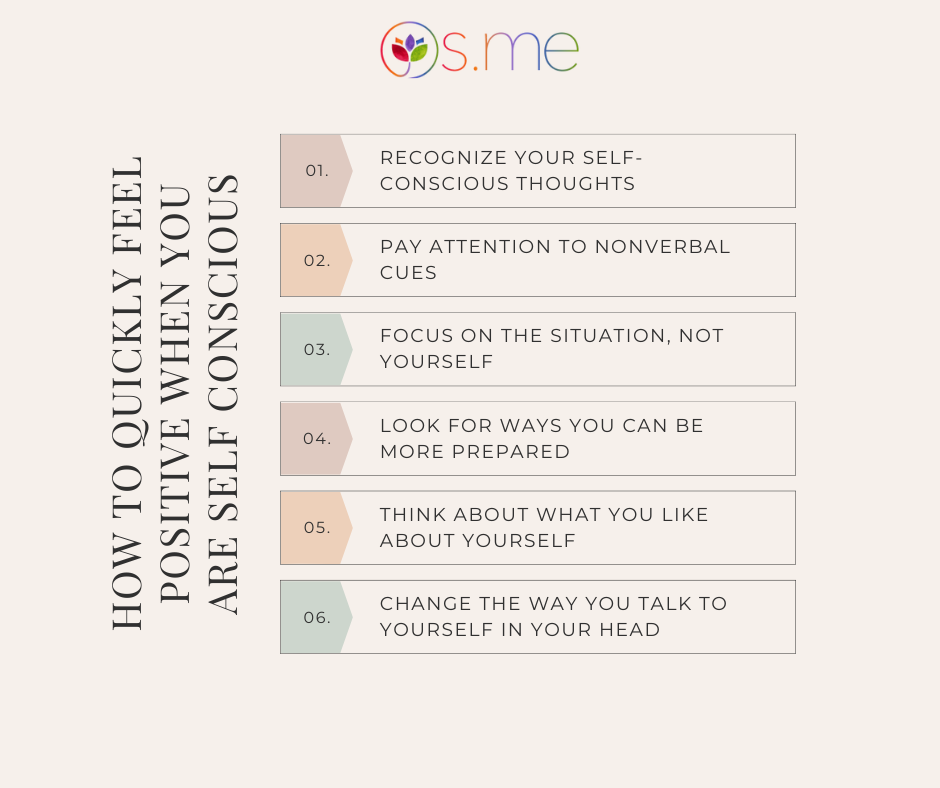
Being self-conscious is being aware of yourself as an individual entity. It’s the ability to objectively see yourself and the world without influencing others’ opinions or thoughts. If someone were to tell you that you’re beautiful, would it make you feel good? Or would it make you want to hide under a rock and never leave your room again?
Highly self-conscious people may worry excessively about their physical appearance or other characteristics they don’t like, such as their weight or hair color. They may be afraid of what other people think about them, so they try to hide their perceived flaws from sight by wearing clothes that cover up their bodies completely (like long sleeves) or by avoiding certain activities altogether (such as going swimming).
They may feel uncomfortable around others and have difficulty making friends. They may fear rejection or judgment from others, so they are hesitant to initiate conversations or participate in group activities.
Self-Conscious Emotions
Can you explain your thoughts and feelings? What is the source of your emotions? The emotional state affects our perception of ourselves—emotions such as jealousy, embarrassment, shame, guilt, or humiliation. Self-awareness can be a good indicator of emotional maturity.
Self-conscious emotions are those feelings we experience when we are self-aware. These emotions tend to be more intense and longer lasting than others and are often sparked by an event or situation that makes us feel exposed, self-critical, or inferior.
These emotions are secondary emotions because the person’s self causes them.
For example, embarrassment is a self-conscious emotion because it is triggered by your own actions or appearance (i.e., you’re embarrassed because you think people see your blunder).
Another example of a self-conscious emotion is pride; this feeling occurs when we feel good about ourselves or what we’ve accomplished, no matter how small that accomplishment may be!
Someone feels ashamed for something they did in the past, even when no one witnessed the action, and there’s no way anyone could know about it except for themselves.
Another example could be, you may feel embarrassed after accidentally spilling your drink on someone, or you may feel guilty after telling a lie. These emotions can be helpful in motivating us to change our behavior and improve our self-image.
However, they can also be debilitating, leading to anxiety and depression. It is important to be aware of your self-conscious emotions and how they affect you. If you find yourself struggling with these emotions, seek out professional help.
What is self-conscious thinking?
When we reflect on negative things that have happened in the past, it often feels unpleasant. It can be overwhelming for some people who prefer not to dwell on anything other than the present moment. However, reflecting on unpleasant events from your past is necessary for growth and development as an individual over time.
Self-conscious thinking is a self-reflective state in which people are aware of their thoughts and feelings and how they may affect their behavior. Self-consciousness can lead to people feeling awkward, anxious, or self-critical.
It is thought to be a regular part of human development and usually emerges during adolescence when people become more aware of themselves and their place in the world.
However, some people remain self-conscious into adulthood, which can interfere with their ability to live a whole and satisfying life. Self-consciousness is not the same as being introspective or self-aware, which are positive traits. Self-consciousness is only problematic when it leads to negative thoughts and emotions.
If you find that self-consciousness is negatively impacting your life, there are some things you can do to lessen its effects and allow you to live a fulfilling and enjoyable life.
Self-Consciousness in Experience
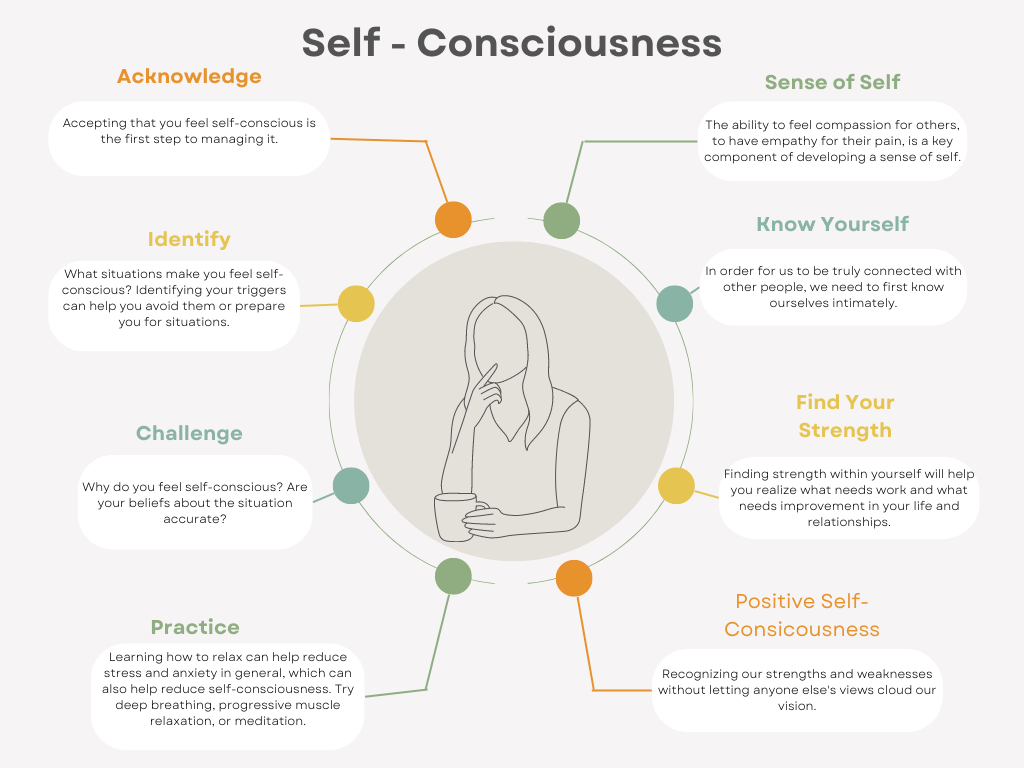
Being self-conscious is feeling self-awareness or shyness in social situations. It can result from feeling awkward, not knowing what to say, or fearing embarrassment. For some people, self-consciousness is an occasional feeling, but it’s a constant state for others.
Suppose someone makes fun of your outfit or comments on how hard it must be for you because they’ve never been fat. Such statements could lead to embarrassment and shame. But suppose instead of letting it go or brushing it off with humor and grace, you allow yourself to get angry at their words and take them as an attack on your character (even though they were only commenting objectively). In that case, all those negative emotions will combine into something even more complicated: self-consciousness.
When we are hyperaware of our bodies or actions in real-life situations; instead of focusing on what’s happening around us our minds become fixated on ourselves as objects or people separate from everyone else around us.
We’re so focused on ourselves as isolated entities rather than part of larger groups—like families or communities—it becomes very easy for us to experience negative emotions. Emotions like guilt (feeling bad because one has done something wrong) and shame (feeling bad because one felt terrible).
Self-consciousness leads to body dysmorphia and eating disorders, in which we obsess over every imperfection in our bodies and become obsessed with controlling food intake. It also leads people to say things like “I hate how I look” or “I wish I were thinner/more attractive/etc.” Because they’re hyperaware of their bodies, they automatically assume that everyone else around them feels the same way about their bodies.
Self-conscious people might avoid social situations or feel down about themselves. Being self-conscious is normal, and we’ve all felt it before.
The important thing is learning how to manage it, so it doesn’t take over your life. Here are some tips:
–Acknowledge your self-consciousness: Accepting that you feel self-conscious is the first step to managing it. Once you recognize that you’re feeling self-conscious, you can start to take steps to deal with it.
–Identify your triggers: What situations make you feel self-conscious? Identifying your triggers can help you avoid them or prepare you for situations.
–Challenge your beliefs: Why do you feel self-conscious? Are your beliefs about the situation accurate? Challenging your beliefs can help you put things into perspective and better cope with self-conscious feelings.
–Focus on other people: Instead of focusing on yourself and how you’re feeling, shift your attention to others. It can help remove your focus and make social situations more enjoyable.
–Practice relaxation techniques: Learning how to relax can help reduce stress and anxiety in general, which can also help reduce self-consciousness. Try deep breathing, progressive muscle relaxation, or meditation.
While being self-conscious might not be fun, there are ways to deal with it, so it doesn’t take over your life. Remember that everyone sometimes feels self-conscious and focuses on challenging your beliefs and refocusing your attention on others instead of yourself.
Relaxation techniques can also help manage stress and anxiety. Talking to a therapist may be a helpful next step if you find that being self-conscious impacts your day-to-day life.
How is self-conscious used in real life?
Being self-conscious is a vital part of everyday life. It allows us to be aware of ourselves and our surroundings and to ensure that we behave in a socially acceptable way.
Without self-consciousness, we would all be like animals, acting on instinct and not considering the consequences of our actions. This self-awareness also allows us to control our emotions so that we don’t lash out in anger or act impulsively when we are upset. In short, self-consciousness is what makes us human.
It allows us to think before we act and reflect on our behavior. So next time you become self-conscious, remember it is a good thing. It means you are doing your best to be a responsible member of society.
In extreme cases, self-consciousness is an overwhelming awareness of self. It manifests as a preoccupation with one’s physical appearance, abilities, and shortcomings.
Self-consciousness is often the root cause of feelings of shyness and embarrassment.
It can lead to social anxiety and isolation. Self-consciousness is a common experience in adolescence when young people navigate physical and social changes. However, it can also affect adults dealing with significant life changes or who have experienced trauma.
Self-consciousness can be debilitating, but there are ways to manage it. Therapy, medication, and self-care are all effective treatments for self-consciousness. With the proper support, anyone can learn to cope with this condition and live a fulfilling life.
Conditions of self-knowledge
- Self-knowledge is a process.
- Self-knowledge is a skill.
- Self-knowledge is a way of knowing ourselves and each other concerning our environments, cultures, communities, and societies.
One way we can achieve self-knowledge is through practicing mindfulness, which involves paying attention to what’s happening in the present moment without judging it or attaching meaning to it.
Self-knowledge can be defined as the necessary conditions an individual must satisfy to have knowledge of themselves. In other words, self-knowledge is self-consciousness.
- The first condition of self-knowledge is that individuals must be aware of their existence.
- Secondly, they must be able to distinguish themselves from other objects and beings.
- Lastly, they must be able to reflect on their thoughts and feelings. This third condition is introspection. It allows individuals to examine their mental states and experiences. This self-reflective ability is what separates humans from other animals and makes self-knowledge possible.
For some people, self-knowledge simply means knowing oneself on a surface level- aware of likes, dislikes, strengths, and weaknesses. However, self-knowledge can also involve deep diving into understanding the emotions that drive our actions, what motivates us, and how we interact with the world around us.
To gain self-knowledge, stepping outside our comfort zones and exploring new things is often necessary. This can be a scary proposition but is also essential for growth. We can become our best selves by constantly pushing ourselves to learn more about who we are.
Is self-consciousness different than being self-conscious?
The difference between being self-conscious and being aware of yourself as an individual is a difference between feeling good or bad about it. Being self-conscious can be a good thing because it means you are growing as a person and learning something about yourself.
For example, if I notice myself staring at someone’s hair for too long in the mirror, I will think, “I’m acting weird,” and then take steps to correct my behavior by focusing on other things.
On the other hand, if you are overly concerned with how others perceive you in every situation, this could lead to anxiety or fear, which will ultimately make life more complicated than it has to be. To overcome these issues with self-consciousness, we need only remember that everyone experiences some level of discomfort when interacting socially because no one likes to feel judged or scrutinized by strangers. And once we accept this fact, we can move forward without worrying much about what others think of us!
The best way to overcome self-consciousness is to become aware of your thoughts and feelings. When you notice yourself being self-conscious, try to think back on what triggered this feeling (e.g., a person who said something that made you feel bad about yourself) and then write down what happened so you can better understand why it happened in the first place.
Once you have identified the root cause of your problem, find ways to fix it by practicing making eye contact with people when talking with them instead of staring at their shoes all day long!
How to turn self-consciousness into positive consciousness?
Being able to be positively self-conscious—or knowing that we are worthy—is often associated with having confidence. But confidence can also come from seeing ourselves clearly without any external influences coloring our judgment or opinion of ourselves.
It is what being positively self-conscious means: recognizing our strengths and weaknesses without letting anyone else’s views cloud our vision.
While self-consciousness is a widespread feeling, it doesn’t have to be something that holds you back. While there are many ways to turn self-consciousness into positive consciousness, the first step is being more aware of your body language and breathing patterns.
- Take note of how you hold yourself when you walk through the halls at school or sit in class. Are you slumped? Are your shoulders hunched up towards your ears? What about your breathing pattern—are you taking deep or shallow breaths? How we carry ourselves affects how others perceive us, so it’s vital to ensure we’re sending out good vibes!
- Next, try focusing on what emotions are going through your head when things don’t go as planned (for example: when someone cuts in front of you while waiting in line). Are they negative or positive?
If they’re negative emotions such as anger or frustration with the person who cut in front of everyone else, then try replacing those thoughts with something more positive like gratitude towards them. Because now everyone has an open spot available instead of being crammed together around one register!
- Finally, try paying attention to how others respond and what made them react as well (e.g. if someone laughs loudly after hearing something funny). It will help build empathy and compassion, leading to greater understanding between people from all walks of life regardless of whether they are perceived differently due to race, gender, etcetera.
It is a great way to gain insight into what makes us tick and why we do what we do. Self-awareness is integral to being a better person because it allows you to recognize your flaws and improve them. You can also use this knowledge to help others around you who may be struggling with their personal development.
Being self-aware is a complex and often painful process, but it’s worth it. It allows you to be the best version of yourself possible, which in turn helps you have more fulfilling relationships with others.
How do you be less self-conscious?
- Practice mindfulness. Mindfulness is a tool that allows you to observe and understand your emotions, thoughts, and feelings without judging them. The goal is to learn to be aware of the present moment without getting carried away by your thoughts or feelings.
- Exercise regularly. Exercise releases endorphins that make us feel good so we can deal with stress better or manage anxiety more effectively. It also increases self-confidence by helping us build muscles and feel stronger physically, which helps boost our mood as well as our self-esteem!
- Meditate regularly (or at least try). Meditation is all about being conscious of the present moment without judgment or expectations, so it’s great for dealing with anxiety because it teaches you how not to get caught up in negative thought patterns like “what ifs?”
- For example: What if I don’t know what everyone thinks about me? What if I look weird when I walk across the room? What if no one likes me? Instead of letting these thoughts spiral out of control, meditation teaches us to focus on our breath until we calm down enough so that those thoughts subside naturally on their own instead of making things worse by unnecessarily adding more stress onto ourselves!
- Meditation works best when practiced daily but even once per week will help improve overall self-esteem just from knowing that there are tools available should times get tough again later on down the line.
Conclusion
In conclusion, being self-conscious is not an easy task. It can affect your mental health and even physical well-being when you cannot cope with it.
We’ve explored what it means to be self-conscious and how this affects our everyday lives. We’ve looked at the different types of self-conscious emotions and how they can interfere with our thoughts and experiences.
While it is important to be aware of these feelings, we don’t want them to control us. There are ways to turn self-consciousness into positive consciousness and have a more fulfilling life. By being mindful of the conditions necessary for self knowledge, we can work on being less self-conscious in social situations.
What techniques have you found helpful for turning your negative self-talk into something more positive? Share your tips in the comments below! Or ask a question to os.me community.

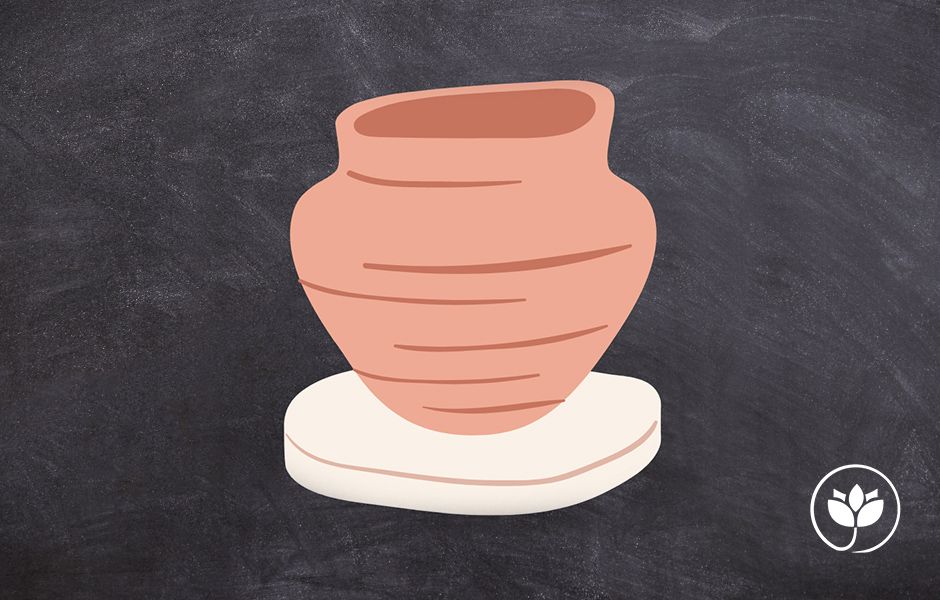
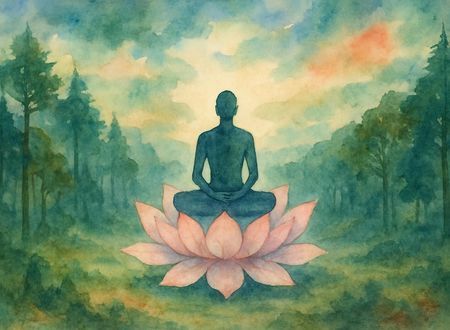
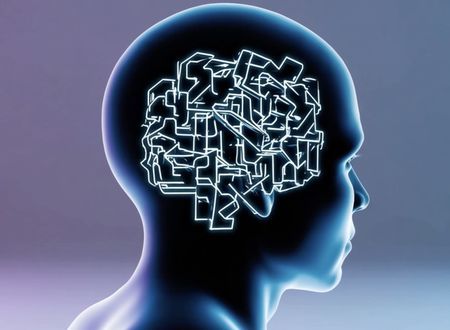





Comments & Discussion
0 COMMENTS
Please login to read members' comments and participate in the discussion.